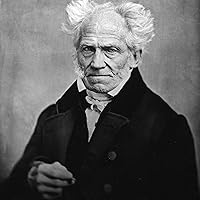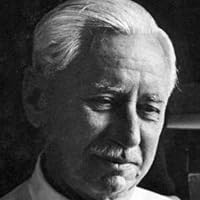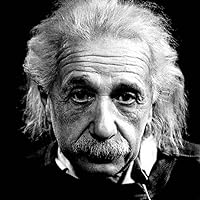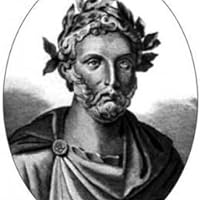Schopenhauer Quotes
Quotes tagged as "schopenhauer"
Showing 1-30 of 92

“They tell us that Suicide is the greatest piece of Cowardice... That Suicide is wrong; when it is quite obvious that there is nothing in this world to which every man has a more unassailable title than to his own life and person.”
―
―

“How much more suffering is caused by the thought of death than by death itself.”
― The Story of Philosophy: The Lives and Opinions of the World's Greatest Philosophers
― The Story of Philosophy: The Lives and Opinions of the World's Greatest Philosophers

“It often happens that we blurt out things that may in some kind of way be harmful to us, but we are silent about things that may make us look ridiculous; because in this case effect follows very quickly on cause.”
―
―

“There is not much to be got anywhere in the world. It is filled with misery and pain; if a man escapes these, boredeom lies in wait for him at every corner. Nay more; it is evil which generally has the upper hand, and folly that makes the most noise. Fate is cruel and mankind pitiable.”
― The Wisdom of Life
― The Wisdom of Life

“A poet or philosopher should have no fault to find with his age if it only permits him to do his work undisturbed in his own corner; nor with his fate if the corner granted him allows of his following his vocation without having to think about other people.”
― The Art of Literature
― The Art of Literature

“A man is never happy, but spends his whole life in striving after something that he thinks will make him so; he seldom attains his goal, and when he does, it is only to be disappointed; he is mostly shipwrecked in the end, and comes into harbour with mast and rigging gone. And then, it is all one whether he is happy or miserable; for his life was never anything more than a present moment always vanishing; and now it is over.”
― Studies in Pessimism: The Essays
― Studies in Pessimism: The Essays

“there is found a third level of religious experience, even if it is seldom found in a pure form. I will call it the cosmic religious sense. This is hard to make clear to those who do not experience it, since it does not involve an anthropomorphic idea of God; the individual feels the vanity of human desires and aims, and the nobility and marvelous order which are revealed in nature and in the world of thought. He feels the individual destiny as an imprisonment and seeks to experience the totality of existence as a unity full of significance. Indications of this cosmic religious sense can be found even on earlier levels of development—for example, in the Psalms of David and in the Prophets. The cosmic element is much stronger in Buddhism, as, in particular, Schopenhauer's magnificent essays have shown us. The religious geniuses of all times have been distinguished by this cosmic religious sense, which recognizes neither dogmas nor God made in man's image. Consequently there cannot be a church whose chief doctrines are based on the cosmic religious experience. It comes about, therefore, that we find precisely among the heretics of all ages men who were inspired by this highest religious experience; often they appeared to their contemporaries as atheists, but sometimes also as saints.”
― Religion and Science
― Religion and Science

“[On Schopenhauer in Black and White] Schopenhauer's views of love are flawed. Love can't be merely an illusion of the mind to aid in procreation, but the path to redemption for an otherwise violently selfish species. Past human greatness has proven that when challenged, love can overpower impulsive instinct, and in essence, the vilest aspects of our nature.”
―
―

“You say you're a pessimist, but I happen to know that you're in the habit of practicing your flute for two hours every evening.”
―
―

“One must not avoid Schopenhauer. One should read him and then overcome him. It is the ladder that you must get rid of once you reach the top.”
― The Gods Are Not Dead
― The Gods Are Not Dead

“For Marx, the only thing that motivates humans is money. For Freud, it’s libido. And for Schopenhauer, it is the blind metaphysical will. All are horribly wrong. More than anything, man seeks meaning in his life. And in that meaning, he seeks superiority over others.”
― The Influencer: Speed Must Have a Limit
― The Influencer: Speed Must Have a Limit
“That streetside tree is obscuring the air. Cut it down. Haul it in for questioning. There are secrets within that foliage. You might want to separate the branches in different rooms and apply some elementary game theory.”
“Question a plant?”
“Trees have a will too, just like people. We have to know it’s purpose. Read Schopenhauer.”
“Schopenwho?”
“He was the only authentic German. You might like him. Being a police officer, you’re undoubtedly familiar with the need to put an end to the lives of the perverse when sex crimes go too far. Now just generalize that necessity to every human being.”
― A Story that Talks About Talking is Like Chatter to Chattering Teeth, and Every Set of Dentures can Attest to the Fact that No . . .
“Question a plant?”
“Trees have a will too, just like people. We have to know it’s purpose. Read Schopenhauer.”
“Schopenwho?”
“He was the only authentic German. You might like him. Being a police officer, you’re undoubtedly familiar with the need to put an end to the lives of the perverse when sex crimes go too far. Now just generalize that necessity to every human being.”
― A Story that Talks About Talking is Like Chatter to Chattering Teeth, and Every Set of Dentures can Attest to the Fact that No . . .

“NOT to my contemporaries, not to my compatriots but to
mankind I commit my now completed work in the confidence that it will not be without value for them, even
if this should be late recognised, as is commonly the lot
of what is good. For it cannot have been for the passing
generation, engrossed with the delusion of the moment,
that my mind, almost against my will, has uninterruptedly
stuck to its work through the course of a long life.
preface to the second edition of "the world as will and representation”
―
mankind I commit my now completed work in the confidence that it will not be without value for them, even
if this should be late recognised, as is commonly the lot
of what is good. For it cannot have been for the passing
generation, engrossed with the delusion of the moment,
that my mind, almost against my will, has uninterruptedly
stuck to its work through the course of a long life.
preface to the second edition of "the world as will and representation”
―

“Let us see rather that like Janus—or better, like Yama, the Brahmin god of death—religion has two faces, one very friendly, one very gloomy...”
― Essays and Aphorisms
― Essays and Aphorisms

“A book can never be anything more than the impress of its author's thoughts; and the value of these will lie either in the matter about which he has thought, or in the form which his thoughts take, in other words, what it is that he has thought about it.”
― The Art of Literature
― The Art of Literature

“The freedom of an unscheduled afternoon brought confusion rather than joy. Julius had always been focused. When he was not seeing patients, other important projects and activities-writing, teaching, tennis, research-clamored for his attention. But today nothing seemed important. He suspected that nothing had ever been important, that his mind had arbitrarily imbued projects with importance and then cunningly covered its traces. Today he saw through the ruse of a lifetime. Today there was nothing important to do, and he ambled aimlessly down Union Street.”
― The Schopenhauer Cure
― The Schopenhauer Cure

“[I]n other words, we should live with due knowledge of the course of things in the world. For whenever a man in any way loses self-control, or is struck down by a misfortune, grows angry, or loses heart, he shows in this way that he finds things different from what he expected, and consequently that he laboured under a mistake, did not know the world and life, did not know how at every step the will of the individual is crossed and thwarted by the chance of inanimate nature, by contrary aims and intentions, even by the malice inspired in others. Therefore either he has not used his reason to arrive at a general knowledge of this characteristic of life, or he lacks the power of judgement, when he does not again recognize in the particular what he knows in general, and when he is therefore surprised by it and loses his self-control. Thus every keen pleasure is an error, an illusion, since no attained wish can permanently satisfy, and also because every possession and every happiness is only lent by chance for an indefinite time, and can therefore be demanded back in the next hour. Thus both originate from defective knowledge. Therefore the wise man always holds himself aloof from jubilation and sorrow, and no event disturbs his ἀταραξία [ataraxia]."
—from_The World as Will and Representation_. Translated from the German by E. F. J. Paye in two volumes: volume I, p. 88”
―
—from_The World as Will and Representation_. Translated from the German by E. F. J. Paye in two volumes: volume I, p. 88”
―
“The will has no overall purpose, aims at no highest good, and can never be satisfied. Although it is our essence, it strikes us as an alien agency within, striving for life and procreation blindly, mediated only secondarily by consciousness. Instinctive sexuality is at our core, interfering constantly with the life of the intellect. To be an individual expression of this will is to lead a life of continual desire, deficiency, and suffering. Pleasure or satisfaction exists only relative to a felt lack; it is negative, merely the cessation of an episode of striving or suffering, and has no value of itself. Nothing we can achieve by conscious act of will alters the will to life within us. There is no free will. Human actions, as part of the natural order, are determined [....] As individual parts of the empirical world we are ineluctably pushed through life by a force inside us which is not of our choosing, which gives rise to needs and desires we can never fully satisfy, and is without ultimate purpose. Schopenhauer concludes that it would have been better not to exist—and that the world itself is something whose existence we should deplore rather than celebrate.”
―
―

“Nul ne peut voir par-dessus soi, écrit Schopenhauer pour faire comprendre l'impossibilité d'un échange d'idées entre deux individus d'un niveau intellectuel trop différent.”
― The Possibility of an Island
― The Possibility of an Island

“...music does not express this or that particular and definite pleasure, this or that affliction, pain, sorrow, horror, gaiety, merriment, or peace of mind, but joy, pain, sorrow, horror, gaiety, merriment, peace of mind themselves, to a certain extent in the abstract, their essential nature, without any accessories, and so also without the motives for them. Nevertheless, we understand them perfectly in this extracted quintessence. Hence it arises that our imagination is so easily stirred by music, and tries to shape that invisible, yet vividly aroused, spirit-world that speaks to us directly, to clothe it with flesh and bone, and thus to embody it in an analogous example.”
― The World as Will and Representation, Volume I
― The World as Will and Representation, Volume I

“Hay pocas cosas que pongan con tanta seguridad de buen humor como el relato de alguna calamidad que se ha sufrido últimamente, o también la sincera confesión de una debilidad personal".”
―
―

“For what is modesty but hypocritical humility, by means of which, in a world swelling with vile envy, a man seeks to beg pardon for his excellences and merits from those who have none?
For whoever attributes no merit to himself because he really has none is not modest, but merely honest.”
― Die Welt als Wille und Vorstellung
For whoever attributes no merit to himself because he really has none is not modest, but merely honest.”
― Die Welt als Wille und Vorstellung

“Morality as it has hitherto been understood- and formulated by Schopenhauer, lastly, as 'denial of the will to life' is the decadence instinct itself making an imperative out of itself: it says 'perish!' - it is the judgement of the condemned...”
― Twilight of the Idols
― Twilight of the Idols

“No man can see over his own height. Let me explain what I mean. You cannot see in another man any more than you have in yourself. Your own level strictly determines the extent to which he comes within your understanding. If your intelligence is unawakened, mental qualities in another, even though they be of the highest kind, will have no effect on you at all… his higher mental qualities will no more exist for you than colors exist for those who cannot see.”
―
―

“If in the representation of perception illusion does at moments distort reality, then in the representation of the abstract error can reign for thousands of years, impose its iron yoke on whole nations, stifle the noblest impulses of mankind; through its slaves and dupes it can enchain even the man it cannot deceive. It is the enemy against which the wisest minds of all times have kept up an unequal struggle, and only what these have won from it has become the property of mankind.”
― The World as Will and Representation, Volume I
― The World as Will and Representation, Volume I

“... we find a complete contradiction in our wishing to live without suffering, a contradiction that is therefore implied by the frequently used phrase “blessed life.” This will certainly be clear to the person who has fully grasped my discussion that follows. This contradiction is revealed in this ethic of pure reason itself by the fact that the Stoic is compelled to insert a recommendation of suicide in his guide to the blissful life (for this is what his ethics always remains). This is like the costly phial of poison to be found among the magnificent ornaments and apparel of oriental despots, and is for the case where the sufferings of the body, incapable of being philosophized away by any principles and syllogisms, are paramount and incurable. Thus its sole purpose, namely blessedness, is frustrated, and nothing remains as a means of escape from pain except death. But then death must be taken with unconcern, just as is any other medicine. Here a marked contrast is evident between the Stoic ethics and all those other ethical systems mentioned above. These ethical systems make virtue directly and in itself the aim and object, even with the most grievous sufferings, and will not allow a man to end his life in order to escape from suffering. But not one of them knew how to express the true reason for rejecting suicide, but they laboriously collected fictitious arguments of every kind. This true reason will appear in the fourth book in connexion with our discussion. But the above-mentioned contrast reveals and confirms just that essential difference to be found in the fundamental principle between the Stoa, really only a special form of eudaemonism, and the doctrines just mentioned, although both often agree in their results, and are apparently related. But the above-mentioned inner contradiction, with which the Stoic ethics is affected even in its fundamental idea, further shows itself in the fact that its ideal, the Stoic sage as represented by this ethical system, could never obtain life or inner poetical truth, but remains a wooden, stiff lay-figure with whom one can do nothing. He himself does not know where to go with his wisdom, and his perfect peace, contentment, and blessedness directly contradict the nature of mankind, and do not enable us to arrive at any perceptive representation thereof. Compared with him, how entirely different appear the overcomers of the world and voluntary penitents, who are revealed to us, and are actually produced, by the wisdom of India; how different even the Saviour of Christianity, that excellent form full of the depth of life, of the greatest poetical truth and highest significance, who stands before us with perfect virtue, holiness, and sublimity, yet in a state of supreme suffering.”
― The World as Will and Representation, Volume I
― The World as Will and Representation, Volume I

“Schopenhauer's insight suggests that individuals often perceive the boundaries of their own perspective as the boundaries of the world. This phenomenon extends to Buddhas, who may interpret the vastness of their own vision as the boundlessness of the world. It's why Buddhas may express ideas that appear ethereal, as consciousness is more fluid than solid and more dynamic than fluid, subtler than air.
As a result, Bodhisattvas, those aspiring to full Buddhahood, are often more articulate than fully enlightened beings. Fully enlightened individuals primarily guide through realization, experience, and symbolism rather than relying on words. Their journey to enlightenment also entails certain losses, including a loss of eloquence, a loss of physical dexterity, a loss of bodily activity, and even a loss of human-like characteristics.”
―
As a result, Bodhisattvas, those aspiring to full Buddhahood, are often more articulate than fully enlightened beings. Fully enlightened individuals primarily guide through realization, experience, and symbolism rather than relying on words. Their journey to enlightenment also entails certain losses, including a loss of eloquence, a loss of physical dexterity, a loss of bodily activity, and even a loss of human-like characteristics.”
―
All Quotes
|
My Quotes
|
Add A Quote
Browse By Tag
- Love Quotes 97k
- Life Quotes 75.5k
- Inspirational Quotes 72.5k
- Humor Quotes 43.5k
- Philosophy Quotes 29.5k
- Inspirational Quotes Quotes 27k
- God Quotes 26k
- Truth Quotes 23.5k
- Wisdom Quotes 23.5k
- Romance Quotes 23k
- Poetry Quotes 22k
- Death Quotes 20k
- Happiness Quotes 18.5k
- Life Lessons Quotes 18.5k
- Hope Quotes 18k
- Faith Quotes 18k
- Quotes Quotes 16.5k
- Inspiration Quotes 16.5k
- Spirituality Quotes 15k
- Religion Quotes 15k
- Motivational Quotes 15k
- Writing Quotes 14.5k
- Relationships Quotes 14.5k
- Life Quotes Quotes 14k
- Love Quotes Quotes 13.5k
- Success Quotes 13.5k
- Time Quotes 12.5k
- Motivation Quotes 12k
- Science Quotes 11.5k
- Knowledge Quotes 11k


